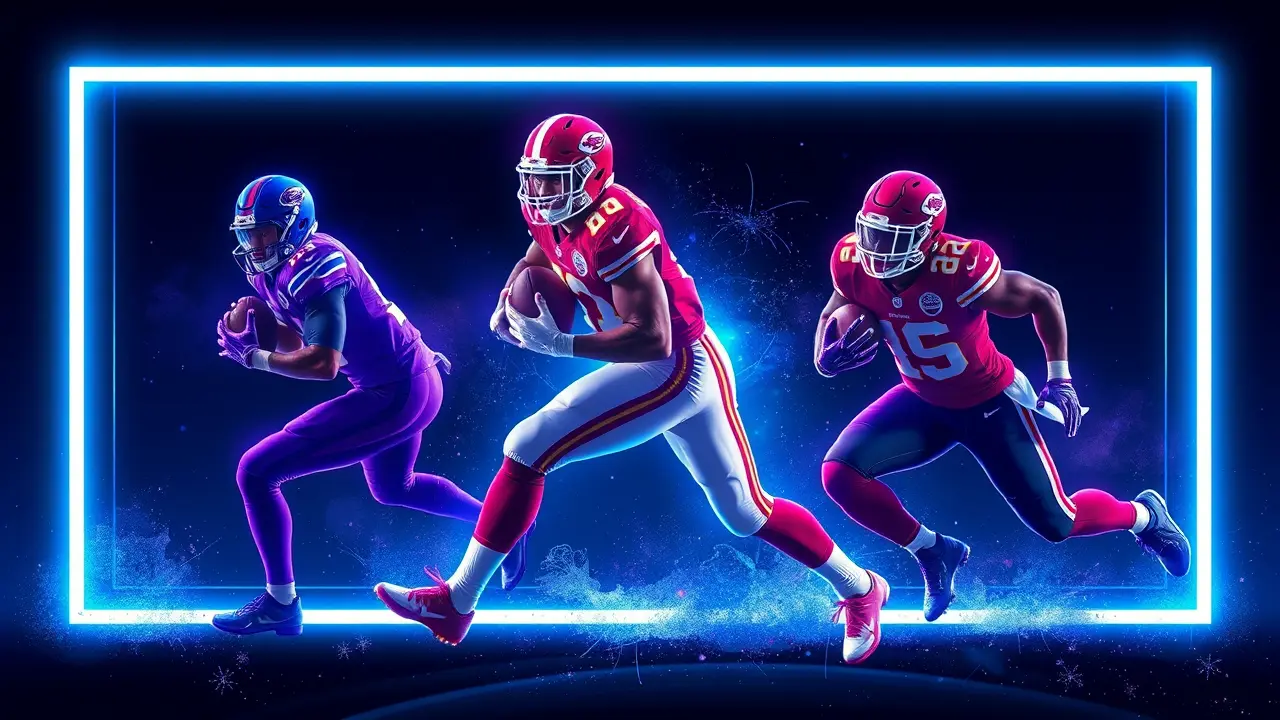Chiefs seeking RB trade in market that may include Alvin Kamara, Breece Hall
The Kansas City Chiefs, a franchise synonymous with offensive dynamism and Super Bowl contention, find themselves at a fascinating crossroads just five weeks into the NFL season. Their uncharacteristic 2-3 start has exposed a critical vulnerability in an otherwise potent attack: a running game that lacks its former explosive identity.This isn't merely a statistical dip; it's a fundamental flaw that threatens to derail their quest for a historic three-peat. The news, broken by NFL Network's Ian Rapoport, that the Chiefs are actively canvassing the league for a running back trade is both a predictable and desperate move from an organization that prides itself on proactive roster management.The names being floated—Alvin Kamara of the New Orleans Saints and Breece Hall of the New York Jets—are the kind of high-impact, game-breaking talents that can instantly recalibrate an offense. Kamara, a versatile weapon whose pass-catching prowess out of the backfield draws immediate comparisons to the legendary Marshall Faulk, represents the perfect chess piece for Andy Reid's complex offensive scheme.His ability to create mismatches in the passing game would be a nightmare for defenses already preoccupied with containing Travis Kelce and a corps of rapidly improving receivers. Hall, on the other hand, is the embodiment of modern youth and explosive power, a back whose combination of breakaway speed and tackle-breaking ability evokes memories of a young Adrian Peterson.Yet, as Rapoport rightly notes, the primary obstacle isn't financial or logistical, but human. Neither Kamara, a face of the Saints franchise, nor Hall, the burgeoning centerpiece of the Jets' future, has expressed a desire to be traded, making any potential deal a monumental challenge that would require a king's ransom in draft capital, a price the Chiefs, with their perpetual late-round draft positions, can ill-afford.This reality forces General Manager Brett Veach to pivot from the glamorous to the pragmatic, scouring the market for a less-heralded but potentially more fitting solution. The current backfield composition in Kansas City tells a story of decline and uncertainty.Isiah Pacheco, the fiery, hard-running successor to the Clyde Edwards-Helaire experiment, has never quite recaptured the relentless physicality that defined his rookie campaign since returning from a significant leg injury; the burst seems diminished, the tackle-breaking frequency lower, a stark reminder of how injuries can permanently alter a running back's trajectory. Kareem Hunt, the veteran brought back for a sentimental reunion, is a shadow of the player who once led the league in rushing; his carries now look labored, his once-elusive cuts replaced by a plodding certainty, a natural but painful regression for a back on the wrong side of 28.Meanwhile, rookie Brashard Smith, a seventh-round flyer, possesses intriguing straight-line speed and receiving potential, but he is an unproven commodity, a lottery ticket in a game where the Chiefs need a sure bet. The inherent difficulty of trading for a running back in today's NFL cannot be overstated.The position has been systematically devalued across the league, viewed as replaceable and dependent on offensive line play, yet the Chiefs' situation underscores a paradox: while backs can indeed 'pop up out of nowhere,' finding the specific one who can thrive within Reid's uniquely demanding system—a scheme that requires elite pass protection understanding, route-running nuance, and the patience to allow complex blocking schemes to develop—is a needle-in-a-haystack endeavor. It's a system that made stars of lesser talents and requires a specific cognitive and physical profile that isn't always apparent on a stat sheet.Compounding the urgency is the reported interest from the Los Angeles Chargers, a divisional rival sitting one game ahead of the Chiefs in the AFC West. The prospect of a bidding war for the same available running back adds a layer of strategic gamesmanship to the proceedings, turning the trade market into a direct extension of the divisional race.This isn't just about acquiring a player; it's about simultaneously strengthening your own roster while preventing a key competitor from doing the same, a high-stakes poker game where the chips are future draft picks and the prize is a crucial advantage in the playoff picture. The Chiefs' pursuit is therefore more than a simple roster tweak; it is a litmus test for their entire organizational philosophy.Can they identify and acquire a back who can not only replicate the production of a Kamara or Hall but do so within the intricate confines of their offense, all while navigating a competitive market and managing limited assets? The answer will likely define their season, determining whether this 2-3 start is a minor stumble or the beginning of the end of a dynasty. History shows that mid-season running back acquisitions can be transformative—think Marshawn Lynch to Seattle in 2010—or they can be expensive failures that disrupt locker room chemistry. For a franchise with championship-or-bust expectations, the margin for error is zero, and every phone call made by the front office carries the weight of their Super Bowl aspirations.
It’s quiet here...Start the conversation by leaving the first comment.
© 2025 Outpoll Service LTD. All rights reserved.
